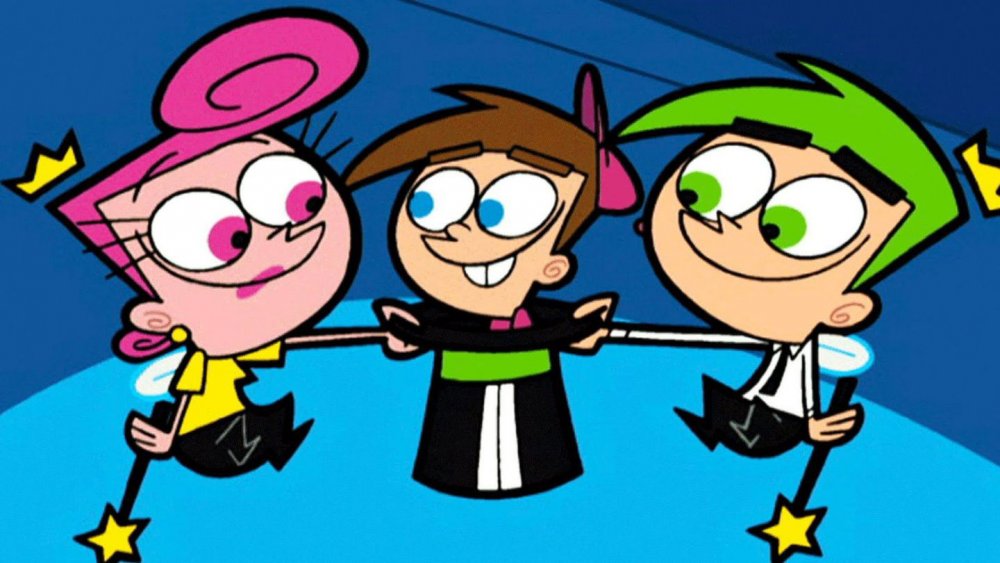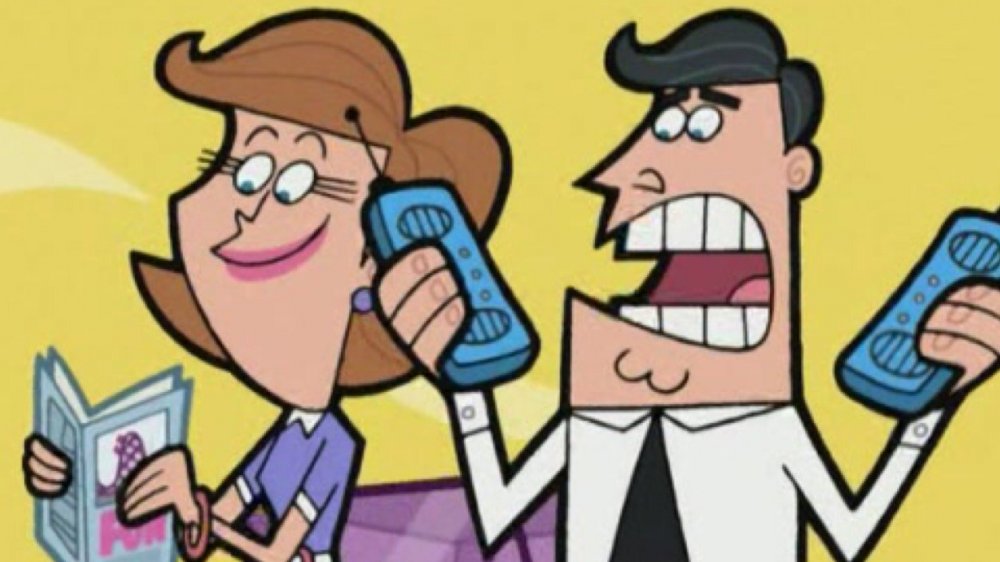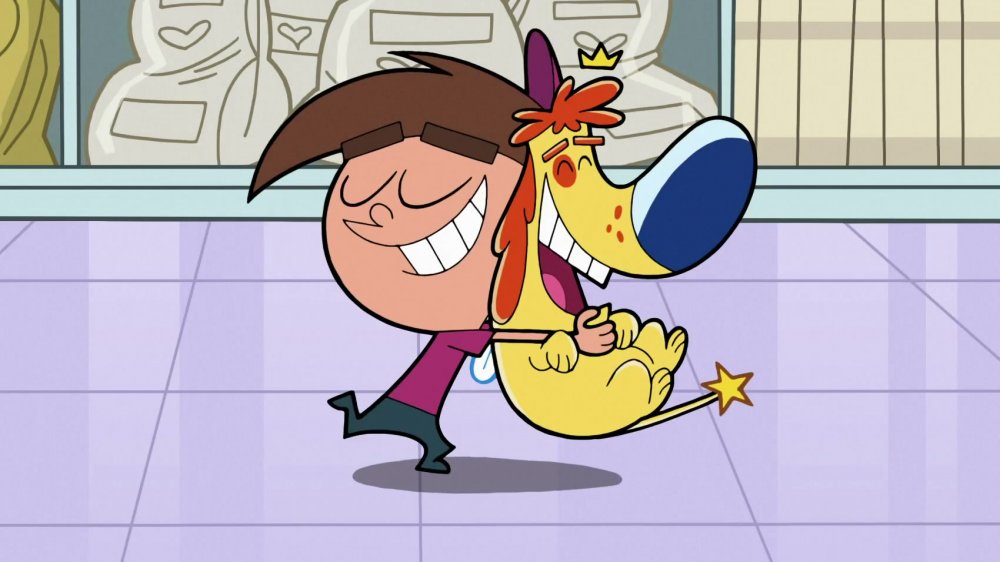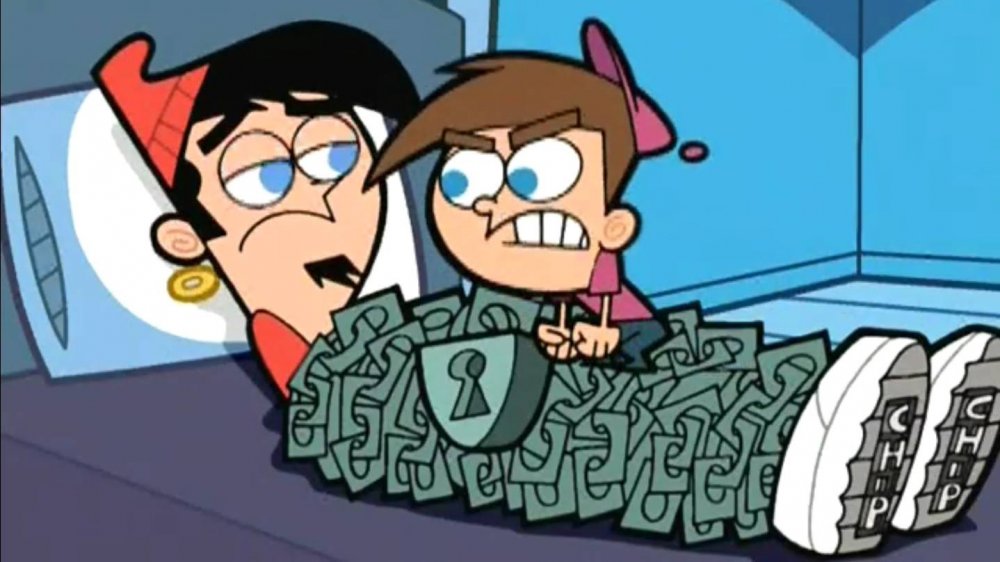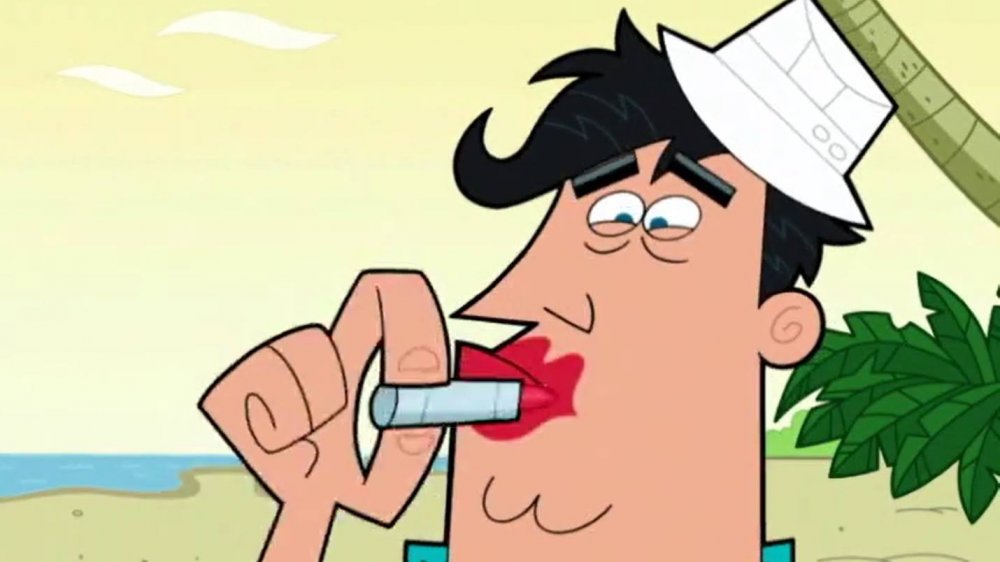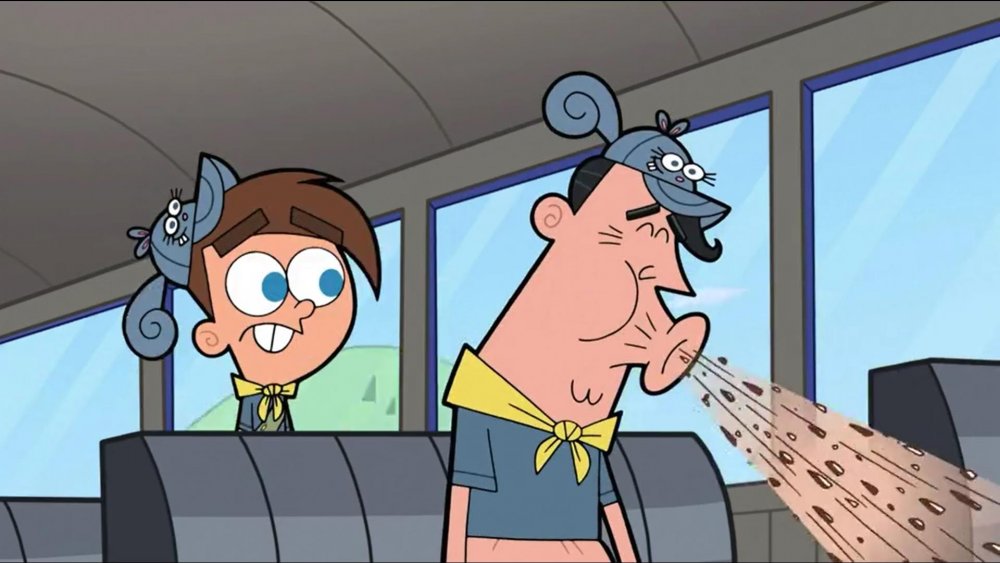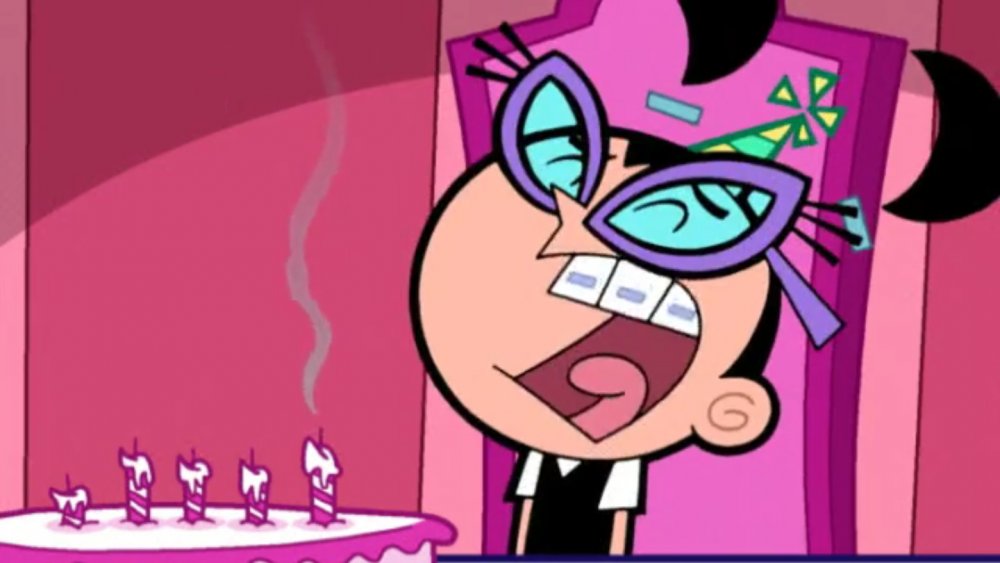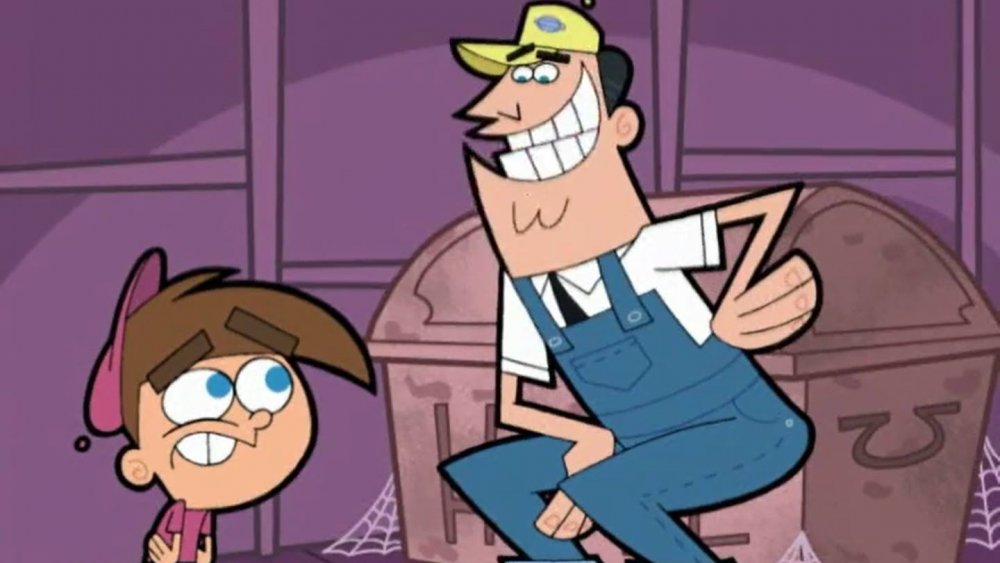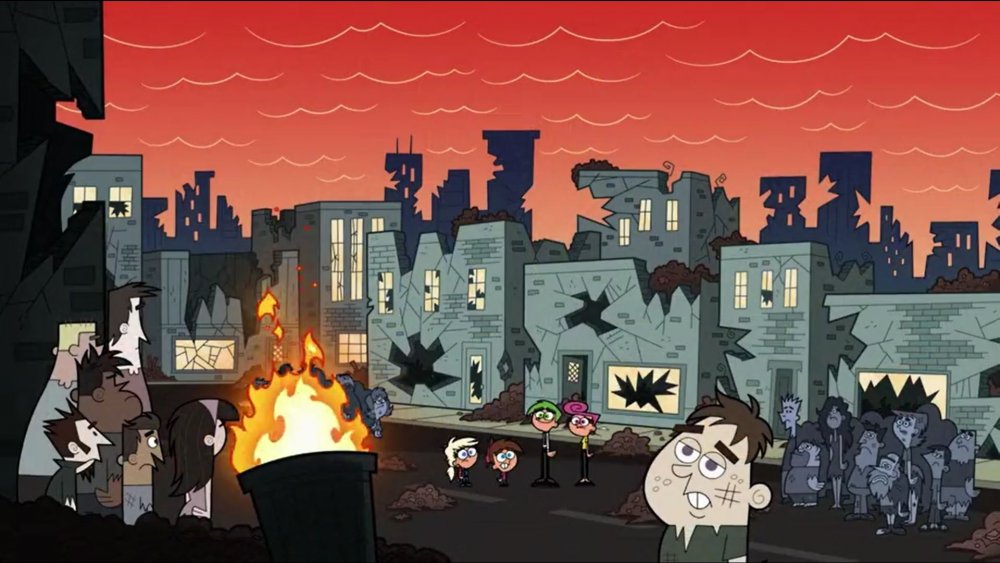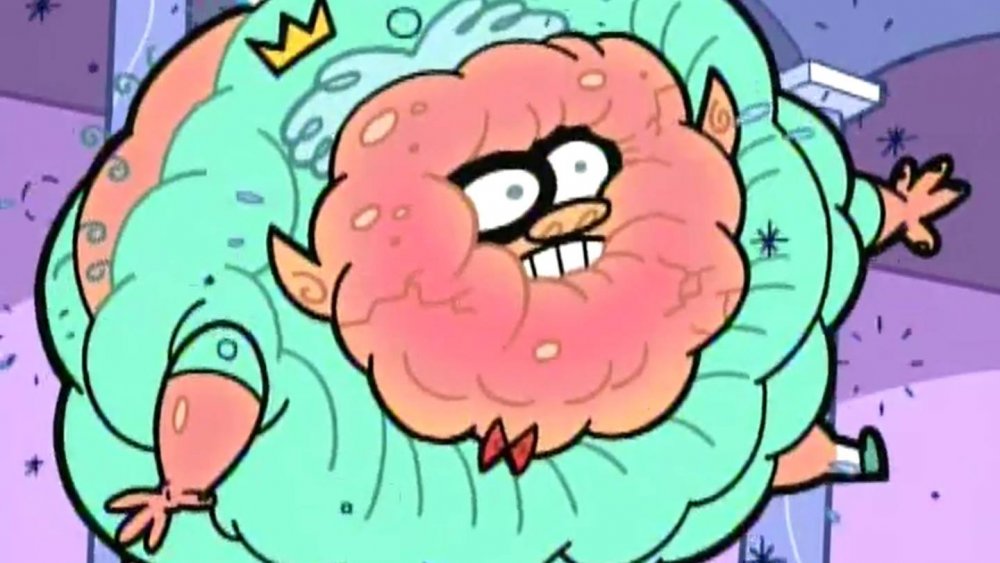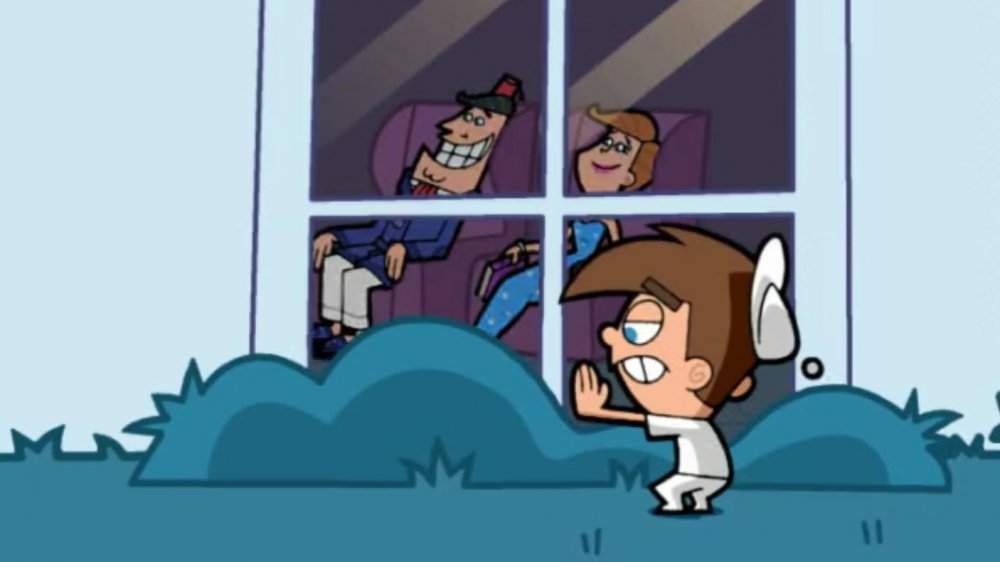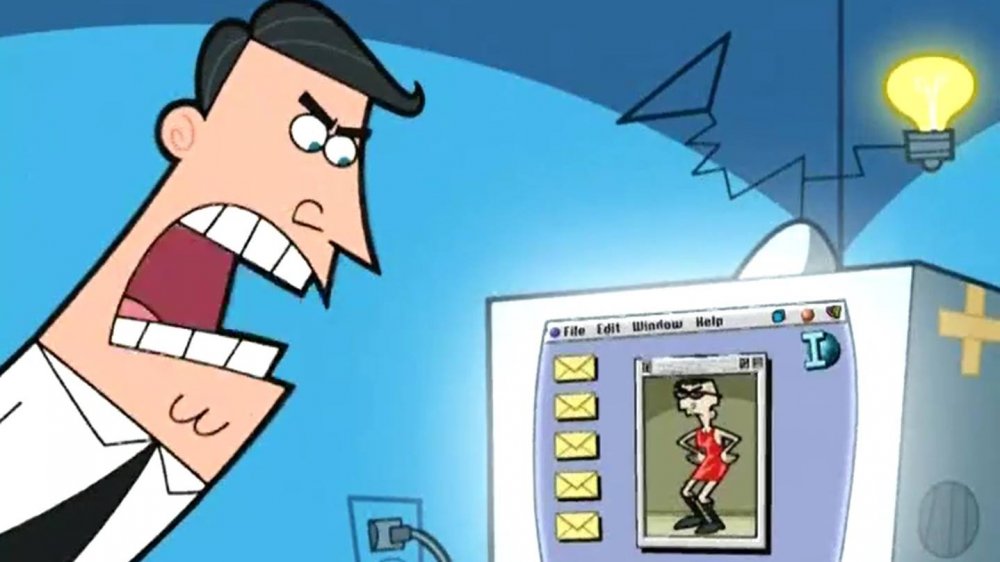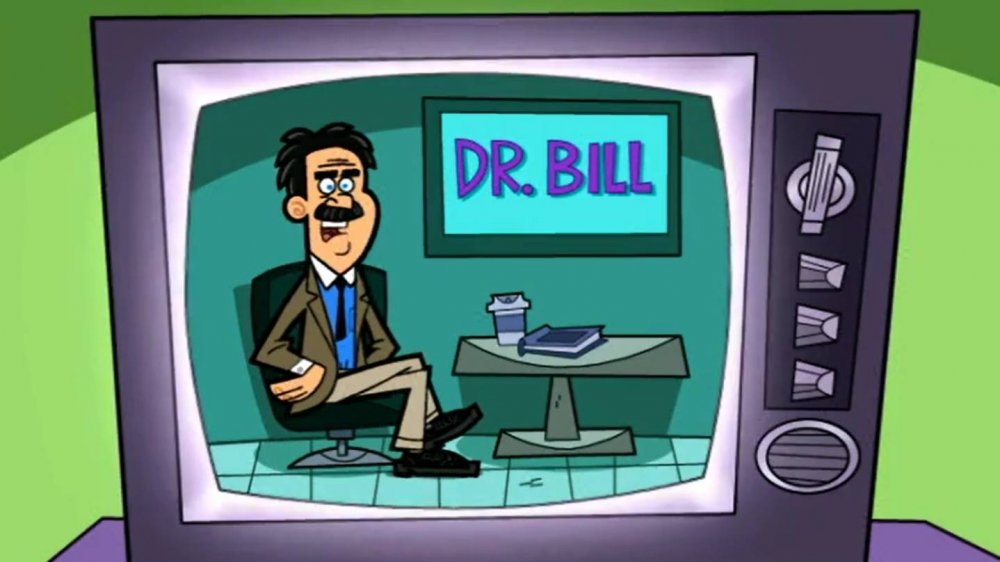Things Only Adults Noticed In The Fairly OddParents
Anyone who grew up watching cartoons in the early 2000s is familiar with The Fairly OddParents. The show follows Timmy, a young boy bullied continuously by his evil babysitter, ignored by his parents, and considered somewhat of a loser at school. Luckily for him, he is given two magical fairies, Cosmo and Wanda, with the power to grant him just about any wish his heart desires. What kid wouldn't want to be in Timmy Turner's shoes?
The Fairly OddParents, created by animation veteran Butch Hartman, ran for ten seasons between 2001 to 2017 on Nickelodeon and Nicktoons. The show won one Primetime Emmy and was nominated for many, many awards throughout its run. The show was aimed squarely at kids, but the appeal of Timmy and his fairy friends isn't just limited to the younger set. Many adults look back fondly on the show — but when they do, a few things may pop out that they might not have seen when they first gave it a watch. With all that in mind, here's a look at some of the many things only adults will notice in The Fairly OddParents.
Timmy's parents are neglectful
Timmy's parents give him a good reason to feel miserable as he goes about his young life. Without a doubt, one of their worst parenting examples is their choice for a babysitter. Vicky is a neighborhood teen who delights in causing pain and misery in other people, especially Timmy. But for all of her yelling and blustering, the Turners never seem to notice how malicious their well-paid babysitter is to their son, despite how painfully obvious her abuse should be to any attentive parent.
Part of the reason they don't notice anything amiss is that they don't pay much attention to Timmy at all. When they do notice their only son, they usually find a way to demean or unfairly punish him. One example of this is when they forget Timmy's birthday and go to a concert, leaving Timmy to be watched over by Vicky for the night in the episode "Boys in the Band." Timmy's parents go even further in the episode "Dad Overboard" when the whole family gets stranded on an island and Timmy's mom wrestles some strange-looking berries from a monkey, then asks Timmy to try one to see if they are poisonous. While there are examples of Timmy's parents showing love for their son, overall, the Turners are terrible guardians and laughably dense.
Sparky disappears
Typically when shows throw out a bunch of new characters, it isn't a good sign. The Fairly OddParents first tried to mix things up with the addition of Poof, Cosmo and Wanda's fairy baby. While cute at first, inevitably baby Poof started to grow old fast. To remedy this, Sparky, a fairy dog, was added to the main cast.
Sparky's first appearance came in the first episode of season nine, titled "Fairly OddPet." In the episode, Timmy realizes that he is the only one in Dimmsdale without a pet. Although Timmy is banned from every pet store in town, Jorgen Von Strangle gives Timmy permission to adopt Sparky, a talking fairy dog who has been returned repeatedly due to his hyper, destructive behavior. Additionally, Sparky has a few quirky abilities such as his ability to conjure up bones and fire hydrants, and even being able to drive, making him a pretty wacky character even in a world where fairy godparents exist.
However, the cute, high-energy pup doesn't seem to have had the intended appeal. By the time season ten started, Sparky was cut from the cast with no explanation and replaced with another new character, Chloe Carmichael. While we don't know precisely why Sparky was replaced, it can be inferred Sparky wasn't very popular among viewers, considering season nine's low ratings.
Timmy tried to kill Chip Skylark
For most of Dimmsdale, teen heartthrob Chip Skylark and his shiny teeth can do no wrong. That is except for Timmy Turner, who at one point despised Chip so much he considered some revenge tactics of dubious legality.
In the episode "Boys in the Band," Timmy is excited to celebrate his birthday. Unfortunately for him, Chip Skylark is having a concert the same night and absolutely no one remembers his birthday. Everyone, including his parents, Cosmo, and Wanda, forgets about Timmy's birthday to geek out over a teen pop star. Even worse, his parents abandon him on his birthday to go to Chip's concert and leave him with Vicky, who makes him even more miserable on his special day. It's no wonder Timmy gets upset.
While it's understandable Timmy feels neglected, the way he handles his anger raises a few alarm bells. Timmy decides he wants to get revenge on Chip, prompting Cosmo and Wanda to remind him that according to "Da Rules," Timmy can't wish Chip maimed, injured, beaten, or dead. After an uncomfortable pause and a look of disappointment, Timmy begrudgingly settles on the "worst possible non-lethal thing" that can happen to Chip.
Before Cosmo and Wanda give him a lecture on responsible wish-making, it seems Timmy may have had some pretty dark ideas for revenge in mind. Luckily for Chip, "Da Rules" may have kept Timmy from canceling Chip's concerts for good.
Uncomfortable gender stereotypes
The Fairly OddParents was never exactly progressive in terms of gender representation. The show often relied on outdated, and at times, regressive portrayals of gender identity and expression.
In the episode "Information Stupor Highway," Timmy's parents both give terrible advice on how to approach a love letter to Trixie. Timmy's mom asserts that women love being told that they are prettier than other women and encourages her son to engage in that behavior. Timmy's dad goes the opposite route by taking the aggressive approach of threatening to kidnap Trixie's parents, playing off the problematic idea that women like overly pushy displays of affection. Both examples play on unhealthy stereotypes regarding what men and women want.
Another strange example occurs in the episode "Dad Overboard." Both Timmy's Dad and Mr. Crocker feel emasculated when they can't do tasks that are stereotypically regarded as manly. When this happens, they start going by "Linda" and put on lipstick. Even Chloe, a main character in the show's tenth season, is governed by female stereotypes: She has trouble saying no to people, is shown to be over-emotional, and is a bit of a perfectionist.
The mouthful of nuts jokes
Timmy and his dad are both members of the Squirrely Scouts and attend many Scout functions throughout the run of The Fairly OddParents. In the episode "Squirrely Puffs," it is revealed that the Squirrely Scout Credo ends on the line, "I flick my tail, and never fail to stuff nuts in my cheeks." Upon uttering those words, Timmy stuffs two handfuls of acorns into his mouth — only to spit a stream of peanuts at Cosmo and Wanda moments later.
The gag of having characters stuffing nuts in their mouths is revisited in the episode "Dinklescouts." When Timmy is nervous about his father's ability to safely lead a camping trip, he wishes that his neighbor Mr. Dinkleberg was their troop leader instead of his father. Since Timmy's dad is continuously envious of Dinkleberg, this makes him less than eager to tag along as a junior scout.
After the campers recite a different version of the Squirrely Scout credo on the bus ride to their campsite, Timmy's dad is seen holding a large number of nuts in his mouth. He then proceeds to spit them out and says, "It's hard to keep nuts in your mouth when you're crying." Older viewers may be able to find some... nutty innuendo hidden here.
Other kids deserve fairies more than Timmy
The central conceit of the show is that miserable kids get fairy godparents who will grant their wishes and make childhood measurably less awful for them. And to be fair, Timmy has a sadistic babysitter and parents that go from being dangerously neglectful to outright smothering. But the thing about Timmy Turner is that he seems noticeably less miserable than some of his peers.
Who might be better candidates than Timmy? Well, Timmy's best friend Chester McBadbat, for one, who is shown as being stereotypically poor. He and his dad live in a trailer house. In the special "Fairy Idol," he and his dad are even in danger of losing their home. Surely Chester could benefit from having some fairy godparents of his own. Another of Timmy's friends, Sanjay, has a stepfather who is a hyper-aggressive drill sergeant. His stepfather is extreme in his routine and makes his stepson religiously practice drills. On top of his complicated family situation, Sanjay also suffers at the hands of Vicky and is considered more unpopular than Timmy.
Yet another possible candidate is Tootie, Vicky's younger sister. In the episode "Birthday Wish!" it's revealed that Tootie is twice as miserable as Timmy. She's constantly abused by her older sister, with no one coming to her aid most of the time. Basically, Timmy has it ridiculously easy in comparison to his peers.
Timmy killed his dad's dreams
In the episode "Future Lost," Timmy and his dad go into their attic to do some cleaning. Among all of the boxes and typical clutter lying around, Timmy spots a large wooden chest that has the word "Hope" painted on the front. On top of this chest is a small, palm-sized box labeled "Dreams." Timmy innocently asks what each thing is, and his dad replies that the chest is his mother's chest of hopes while the box is his own box of dreams.
Timmy picks up the small box to examine it more closely, but he clumsily drops it. Timmy grimaces and apologizes as the box shatters, but his dad looks unconcerned and responds, "Oh, don't worry about it, Timmy. My dreams were shattered years ago." Curious, Timmy asks how many years ago his dad's dreams were broken, only to hear the following reply: "How old are you?" Not only does Timmy's dad not know his son's age, but the implication here is also that Timmy ruined his dad's dreams the moment he was born.
No one uses wishes to solve problems
A typical episode of The Fairly OddParents centers around Timmy and his fairies dealing with the fallout of a wish that was not well thought out. Most of the time, the solution is simply wishing for things to be normal again. Yet while a wish is used to make a bad situation better, it seems weird how uninventive Timmy is with his wishes in general.
Timmy can wish for just about anything he wants, yet he never makes any significant changes in his life. Why doesn't he ever wish for Mr. Crocker to transfer to another school? In one episode, Timmy is made fun of for his teeth, so he wishes everyone looks the same. Why doesn't he wish for perfect teeth instead? It just seems like, for a kid with nearly limitless possibilities, Timmy restricts himself all the time.
When Timmy does make a big wish, it's usually to fix a screwup he caused instead of preventing one from the start with a better wish. One great example comes from the episode "The Hungry Games," in which Timmy wishes that his home town would be like the movie The Hungry Games so he and Chloe can be like the heroes in the movie. The problem is, there is now no food in the city. Making his whole town suddenly starve was a bad idea, so the episode ends with the world being put back to normal with a single wish.
Fairies turn to dust if they can't grant wishes
Being a fairy godparent seems like a sweet gig. In terms of responsibilities, a typical day on the job is granting wishes and following "Da Rules." In return, fairies have access to seemingly limitless magical powers at their disposal. But it turns out that being a fairy is not without some major drawbacks.
In the episode "The Same Game," we learn what happens to a fairy if they go too long without granting a wish: They explode. But they don't just explode; first, they start to swell in size until they get to be as big as a small whale, all while veins stretch and their skin turns red. Granted, after the fairy explodes, they turn into a pile of confetti that can be wished back into its original fairy shape again. However, it seems that this is the only way for a fairy to be cured, so this presents a problem for fairies if a godchild becomes unwilling or unable to make wishes.
The real problem? The time fairies can go without granting wishes varies between individuals. Some can only go a few minutes while others can go for a few weeks. For some fairies, there may be no time for relaxation at all. Essentially, fairies are locked in a contract with their godchildren where they have to continually grant wishes or else they turn into a pile of dust.
The world is better without Timmy
In the episode "It's A Wishful Life," Timmy becomes irritated with everyone after they take his good deeds for granted. Fed up with no one appreciating his acts of kindness, Timmy wishes he was never born so he can see what everyone else's lives would be like without him. In most uses of this trope (including the film It's a Wonderful Life), the message is that the world is a better place with the protagonist in it. Fairly OddParents takes the opposite approach.
Everyone is actually better off without Timmy: Chester has fairy godparents, Timmy's parents live in luxury, and A.J. has hair. Head fairy Jorgen Von Strangle tells Timmy that he has to find one person whose life is worse without him or else he will have to go to "a place where all kids who wished they were never born" live. Timmy has the opportunity to trick Jorgen to escape his fate, but he relents and admits that the world is better without him. In the end, Jorgen reveals that this entire ordeal was a test and that he passed. As a result, Jorgen puts everything back to normal.
While it all turned out well for Timmy in the end, the existential dread building throughout the episode was probably lost on most young viewers. In retrospect, it's also pretty messed up to force a literal child through such a traumatic experience.
Adult websites
In the episode "Information Stupor Highway," Timmy wishes himself inside the internet so he can stop an embarrassing love letter from reaching the email inbox of his crush Trixie. As he attempts to follow his letter across the internet, Timmy ends up in the computer of his fairy-obsessed teacher Mr. Crocker. While Timmy is in his teacher's computer, Mr. Crocker's elderly mother enters the room and forces her son to model a tight-fitting red dress for her.
Seeing this, Timmy activates the webcam and saves a video for future use. At the end of the episode, the video that Timmy recorded gets spread across the internet, making Mr. Crocker a joke to his students and users across the world. Timmy finally emerges from the web into his room with the video still on his computer. At just that moment, Timmy's dad walks into the room and is dismayed at the image on display, saying, "Timmy, you're not allowed on those websites!" Then upon hearing the strange man on the screen is actually his son's teacher, Timmy's dad says, "Well, it does make him look pretty."
It seems sensible for Timmy's dad to be upset seeing his son looking at what he assumes is an adult website. But when the subject of those images is revealed to be Timmy's teacher, the whole situation really ought to give him pause. There are definitely some layers to unpack here.
Dr. Bill
Timmy's parents watch an interesting television program in the episode "Poof's Playdate." The daytime television program in question is hosted by a mustachioed man named Dr. Bill, clearly a riff on television personality Dr. Phil, who is showing viewers something called his "Bad Parent Test." Timmy's parents are watching intently and considering their own parenting choices all the while. According to Dr. Bill's test, if a child says "I'm busy," often stays in their room alone for extended periods of time, and uses a lot of paper towels, then they were raised by bad parents.
Of course, Timmy is currently in the midst of exhibiting all of these behaviors because he's trying to clean a mess left by baby fairies in his bedroom and attempting to keep his parents from finding out about the chaos. Now, Dr. Bill's list is entirely thinly veiled innuendo that most kids won't understand. Naturally, Timmy's parents see what they think is problematic behavior happening before their eyes and conclude that they must be bad parents. They then decide to pay more attention to Timmy to keep him from spending so much time alone with paper towels. Ironically, these two things don't accurately correlate, despite what Dr. Bill may believe.
